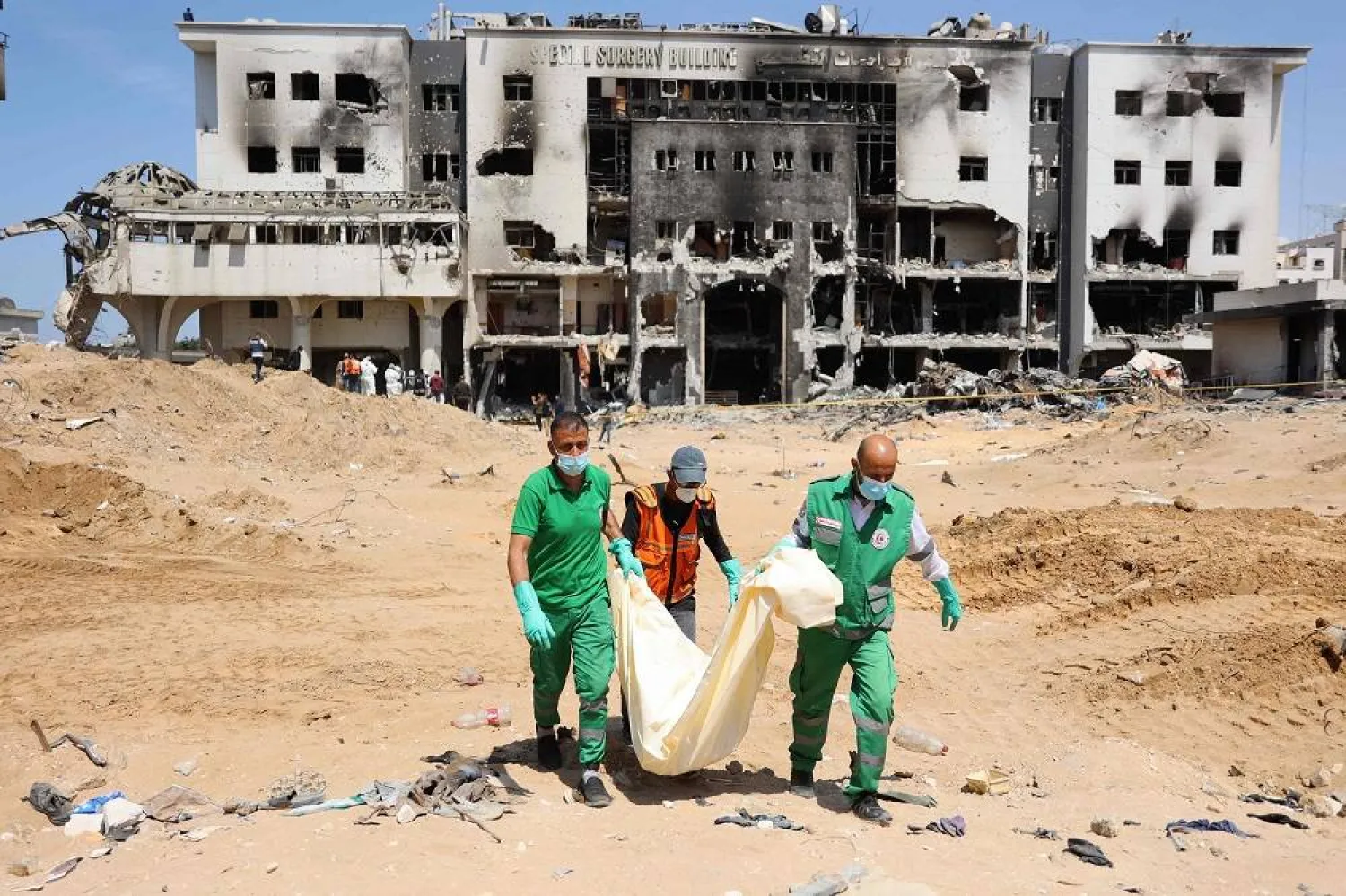Germany on Tuesday strongly rejected a case brought by Nicaragua at the United Nations' top court accusing Berlin of facilitating breaches of the Geneva Convention and international humanitarian law by providing arms and other support to Israel in its deadly assault on Gaza.
"The minute we look closely, Nicaragua’s accusations fall apart,” Christian Tams, a member of Germany's legal team, told the 16-judge panel at the International Court of Justice.
On Monday, Nicaragua urged judges to order a halt to German military aid to Israel, arguing that Berlin’s support enables acts of genocide and breaches of international humanitarian law in Gaza.
The head of Germany's legal team, Tania von Uslar-Gleichen, said Nicaragua's claims "have no basis in fact or law. They are dependent on an assessment of conduct by Israel, not a party to these proceedings.”
Preliminary hearings held Monday and Tuesday are focused solely on Nicaragua’s request for so-called provisional measures, including a court order for Berlin to halt military and other aid to Israel and reinstate funding to the UN aid agency in Gaza.
Tams said that Germany had licensed only four exports of weapons of war to Israel since October, “three of which concern test or practice equipment.”
Showing judges a photo of German aid being airdropped over Gaza, Tams added that Berlin continues to provide humanitarian support to Palestinians “every single day under extremely difficult conditions, constructively engaging with international partners.”
Nicaragua's case is the latest legal attempt to rein in Israel's offensive by a country with historic ties to the Palestinian people, after South Africa accused Israel of genocide at the same court late last year. It also comes against a backdrop of growing calls for Israel’s allies to stop supplying the country with weapons — and as some supporters, including Germany, have grown more critical of the war.
At Monday's hearings, Nicaragua’s Ambassador to the Netherlands, Carlos José Argüello Gómez, accused Germany of “failing to honor its own obligation to prevent genocide or to ensure respect of international humanitarian law.”
However, another lawyer for Germany, Samuel Wordsworth, argued that the court could not rule Germany was violating the obligation to prevent genocide because its judges have not ruled that Israel is breaching the Genocide Convention.
In a preliminary phase of the case brought late last year by South Africa, the UN court has said that it is “plausible” that Israel's actions in Gaza could amount to breaches of the convention.
“How can it be said that there was a failure to ensure respect of a third state, if the failure on the part of that third state to respect is not established in the first place?” Wordsworth said.
The court will likely take weeks to deliver its preliminary decision, and Nicaragua’s case will probably drag on for years.
Israel strongly denies that its assault amounts to genocidal acts, saying it is acting in self-defense after Hamas-led militants stormed into southern Israel on Oct. 7, killing some 1,200 people.
Since then, more than 33,000 Palestinians have been killed in Gaza, according to the territory’s Health Ministry. Its toll doesn’t differentiate between civilians and combatants, but it has said women and children make up the majority of the dead.
According to the Stockholm International Peace Research Institute, Germany is second only to the US in supplying arms to Israel — but it would be harder, if not impossible, for the US to be brought before the court because Washington does not recognize the ICJ’s power to compel countries to appear before it. The US also has not signed a protocol to the Genocide Convention that allows countries to bring disputes to the court.









